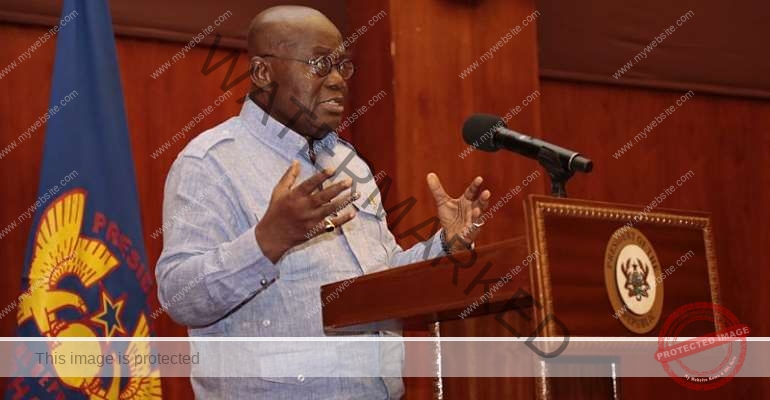President Nana Addo Dankwa Akufo-Addo has called on media houses to prioritise fact-checking and correction of false reports. He said although soc
President Nana Addo Dankwa Akufo-Addo has called on media houses to prioritise fact-checking and correction of false reports.
He said although social media had revolutionarised communication, it had also become platforms for misinformation and disinformation and, therefore, journalists must be vigilant in verifying information before disseminating.
President Akufo-Addo, who was addressing a summit on misinformation and disinformation, Election 2024, in Accra Thursday, therefore, urged journalists to take proactive measures to curb the spread of false information and ensure that the public had access to accurate and reliable information.
Digital age
The President said that the digital age had transformed the way information was disseminated and consumed, adding that false narratives could distort public perception, undermine trust in institutions of the country and even incite violence.
He said unchecked spread of misinformation and disinformation could have dire consequences for democratic stability as seen in various parts of the world. The Ghana Report Summit seeks to discuss misinformation and disinformation and their potential impact on the 2024 general election.
While acknowledging that the digital age had brought numerous benefits, President Akufo-Addo also pointed out that it had created fertile ground for the spread of misinformation and disinformation.
“The impact of misinformation and disinformation on the electoral process cannot be exaggerated. False information can skew public perception of candidates and political parties, leading to uninformed decision-making at the polls.
“It can also create confusion and mistrust, undermining the credibility of the electoral process,” the President added.
Personal experiences
Recounting his experiences and those of others in the run-up to the 2008, 2012, and 2016 elections, President Akufo-Addo said: “I was the target of numerous false and malicious stories aimed at attacking my credibility and integrity.”
“In 2008, baseless allegations of drug trafficking were spread, along with numerous rumours about my health, intended to cast doubt on my ability to serve as President.
“President Kufuor was also accused in 2008 of having sold all of Ghana’s gold reserves. “These experiences underscore the importance of discerning truth from falsehood and the need for all of us to remain vigilant against the dangers of misinformation and disinformation,” he said.
The President, therefore, called for effective collaboration between government and technology companies to identify and remove false content, while promoting credible information sources.
He announced that a nationwide campaign would be launched to raise awareness and promote literacy among citizens. “In addition to these efforts, I am pleased to announce that the government is in the process of putting in place a national action plan to combat misinformation and disinformation.
“This comprehensive plan, currently before cabinet for consideration and action, outlines strategic steps to address the spread of false information,” President Akufo-Addo said.
December polls
The Minister of National Security, Albert Kan-Dapaah, said the upcoming 2024 general election would test the resilience of the democracy in the country. He said it would challenge the strength of institutions and the unity of the people, adding that “we find ourselves in a situation where democracy is under severe scrutiny and attack”.
The Ga Mantse, King Tackie Teiko Tsuru II, for his part, said elections were more than choosing leaders of a country.
He said they were affirmation of the rights and responsibilities of citizens, and, therefore, charged the people to get involved in the governance process of the country and ensure that leaders were accountable.
The Managing Editor, Ghana Report Summit, Rashida Sani, said a well-informed public was the cornerstone of a thriving democracy.
